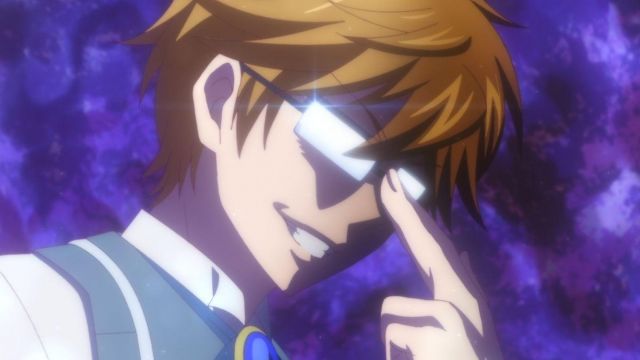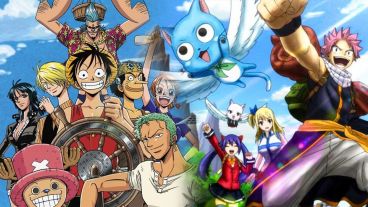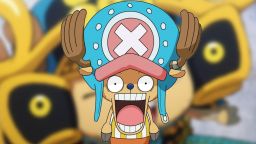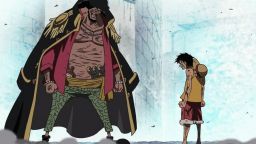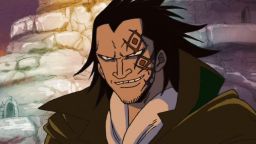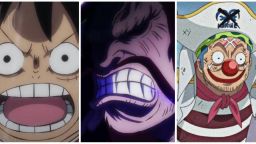I'm the Villainess, So I'm Taming the Final Boss is a brand-new isekai anime title of the Fall 2022 season, starring the antihero Cinderella protagonist Aileen d'Autriche and her quest for survival in an otome game world that wants her to lose. For the most part, this premise has led to a fairly conventional isekai adventure, but at least the portrayal of slavery makes sense this time.
It's an unfortunate trend for isekai anime to try and get edgy by showing the protagonist paying money for slaves and turning those slaves into party members, with The Rising of the Shield Hero and Black Summoner being two notable examples. Somehow, those isekai heroes aren't outraged at the sight of slavery, but of all people, the would-be villains of I'm the Villainess sternly object to slavery by default.
Aileen's & Claude's Firm Stance Against Slavery & The Exotic Pet Trade

The plot line of trafficking demons as slaves and/or exotic pets in the world of I'm the Villainess is handled smartly, unlike the slavery scenes of anime like Shield Hero and Black Summoner, both of which took this grim topic too lightly. Recent episodes of I'm the Villainess made the effort to make slavery and the exotic pet trade a meaningful part of the story rather than throwing in slavery scenes for cheap shock value. It's more than "this is a gritty fantasy world, so here's the obligatory slavery." Instead, I'm the Villainess depicted the kuudere demon king Claude's #1 human servant, Keith, reluctantly trafficking caged demons in exchange for protecting Claude's land from being taken away. Years ago, Keith forged a signature to obtain that land for Claude, and the other party caught on. So, Keith agreed to traffic demons as slaves or exotic pets in exchange for keeping the illegal forgery a secret.
Keith can't stand this. He still feels terribly guilty not for forging the signature but for trafficking the demons, but he fears Claude's wrath. So, being the helpful villainess she is, Aileen stepped in and helped set up a sting operation the next time Keith's customers arrived to buy some caged demons. The operation was a success, and Keith made sure the caged demons were set free while the human customers were punished. As a bonus, Aileen even mentioned how Keith tried to soften the harshness of his slavery business by demanding that all his customers treat their slaves or pets well.
All this helped portray slavery not as a convenient way to buy a party member but as a grotesque institution that the villains, of all people, abhor. Keith was disgusted with himself for trafficking demons, only doing so out of desperation to protect the contract for Claude's much-needed plot of land. Not once was slavery whitewashed as a pragmatic necessity or a matter of "that's just how it is in this medieval world." The characters and by extension, the story, took a firm stance against slavery and won.
The Failures of Shock Value in Isekai Anime

Slavery is one of several examples of stories, anime or otherwise, trying to shock readers/viewers with something edgy or hardcore to stand out and keep audiences engaged. It's one thing for stories to depict grim or brutal events and institutions for plot reasons, but throwing them in just to look cool is an endeavor that's doomed to failure. Already, plenty of anime fans are revolting against the isekai slavery paradigm -- not because slavery should never be shown, but because it's being depicted the wrong way and for the wrong reasons. No one is asking for anime to whitewash slavery and naively act like it doesn't exist. Instead, anime fans don't like it when isekai like Shield Hero and Black Summoner take slavery too lightly and throw it in just for shock value. Slavery is a grim, very real topic that must be handled smartly and with care in fiction.
If a dark, sensitive topic like slavery doesn't serve a clear, essential purpose for a story, it simply shouldn't be included. Even then, for ethical reasons, it's always the right call to depict slavery in a negative light, with protagonists objecting to it by principle and often taking action to undermine it. However, Shield Hero and Black Summoner depicted heroes who saw a slave as a convenient way to buy a party member, and Naofumi and Kelvin did nothing to protest this institution or take action against it. Kelvin could and should have broken Efil free and snuck her away, but instead, he paid good money for her, supporting that world's darkest institution without any regrets. There is no defending that, and Kelvin hugely dropped the ball, as did Naofumi Iwatani before him.
By contrast, I'm the Villainess made it clear that slavery and exotic pet trafficking are monstrous and must be stopped, and Keith only did it out of reluctant necessity to protect Claude's lands. From the very start, Keith hated what he was doing, and once Aileen came along, Keith took his chance to shut down his trafficking operation for good. It's funny that in this world, Aileen, Claude and Keith are supposed to be villains, but by tearing down their world's nastiest institution, they became greater heroes than Naofumi and Kelvin ever were.
